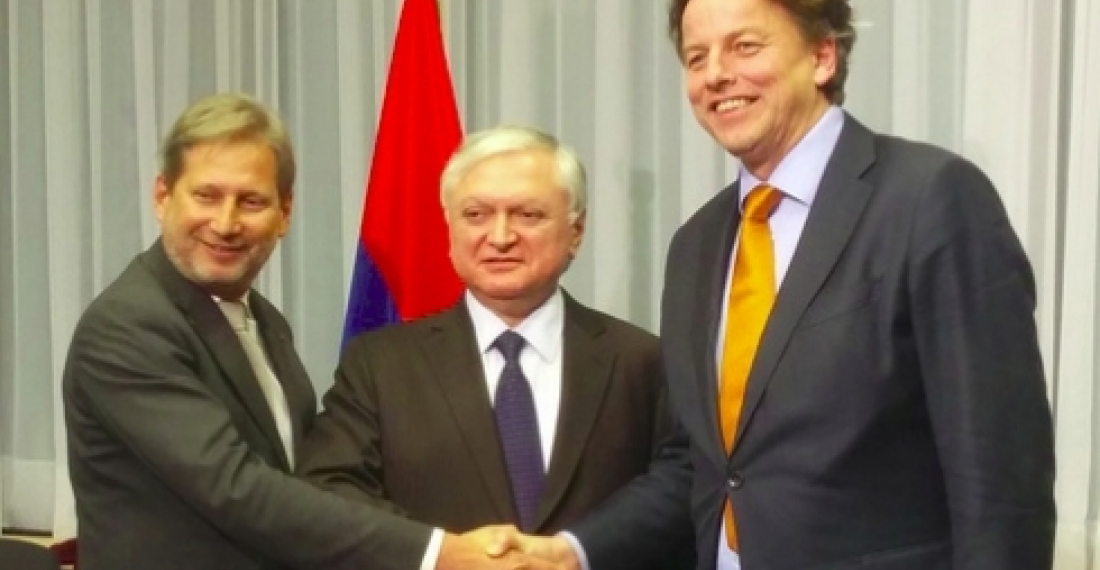The status quo in Nagorno-Karabakh is “unsustainable” and resolving the conflict is a top priority for the EU, top officials on Monday said, while offering their continued support to the peace process and encouraging restraint on both sides.
“The security situation along the Line of Contact and the international border between Armenia and Azerbaijan is a matter of serious concern,” said the official statement from the 16h meeting of the Armenian-EU Cooperation Council.
In Brussels, Armenian foreign minister Edward Nalbandian met with senior EU figures to discuss Karabakh as well as other issues such as visa liberalisation.
In September 2013 Armenia announced it was joining the Russian-led Eurasian Economic Union, turning its back on a proposed Association Agreement with the EU. However a looser EU-Armenia agreement is being prepared.
Nalbandian discussed these issues with Bert Koenders, foreign minister of the Netherlands (the country holding the current Presidency of the EU), and Johannes Hahn, commissioner for neighbourhood policy and enlargement.
Also on the agenda was the meeting between the Armenian and Azerbaijani presidents which took place in Bern, Switzerland in December.
“The agenda of the (Bern) meeting was dictated by the escalation of situation as a result of Azerbaijan’s provocations, gross violations of cease-fire regime,” said Nalbandian.
The European officials were more positive about the discussions in Bern, saying they provided an important opportunity for future exchanges, and offered practical support to the regions affected by conflict when a peace deal is struck.
As well as calling for restraint in the conflict zone, the EU reiterated its support for the OSCE Minsk Process.
The EU officials welcomed some political, economic and social reforms underway in Armenia, while encouraging greater changes in other areas, including the rule of law, human rights and the electoral system.
Armenia is to receive €140-170 million in assistance between 2014-2017, the EU statement said, with the funds to focus on private sector development, public administration reform, and justice sector reform.
Source: commonspace.eu with www.armardio.am, www.consilium.europa.eu
Photo: Edward Nalbandian, Ber Koenders and Johannes Hahn meet in Brussels on January 18






